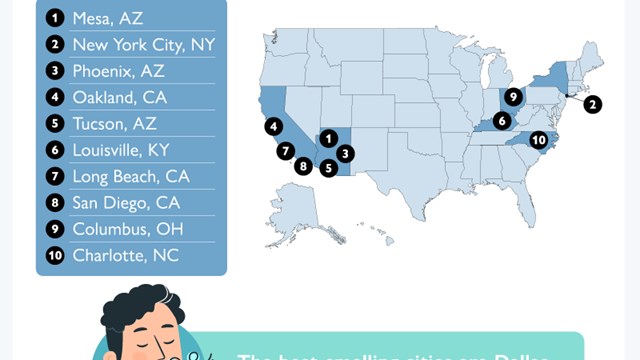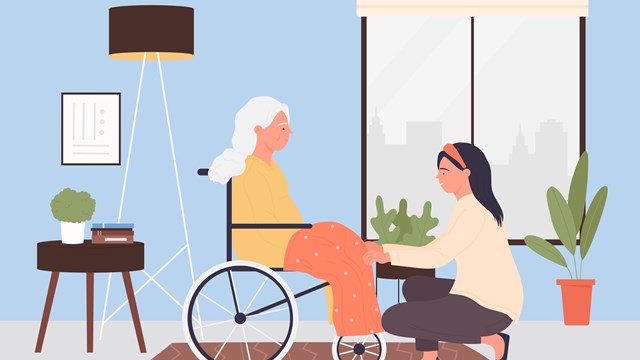
One visit to Great Neck and it’s not hard to figure out why it’s become such a desirable neighborhood to live in. The first Nassau County town you reach driving east out of New York City, Great Neck offers scenic waterfront views, proximity to Manhattan (about 25 minutes on the Long Island Rail Road), parks and shopping.
It also features more than 100 co-ops and condos spread over just 1.4 square miles. In Great Neck Plaza, one of the Great Neck’s nine incorporated villages, there are more than 60 condos in less than a third of a square mile.
In order to address the needs of Great Neck’s co-ops and condos, and to help boards do a better job of running their buildings, The Great Neck Co-op & Condominium Council (GNCCC) was formed in 2002.
“I don’t think there’s any other place in Nassau County that has as many co-ops and condos as there are in Great Neck,” says Stu Hochron, one of the co-chairs of the council. Hochron is a board member and former board president at Bond Parc in Great Neck Plaza.
The mission of the council is to address the needs of Great Neck’s condo and co-op community and to help board members become more informed about how co-ops and condos work.
“We felt, as members of our boards, that we were really unprepared to run the buildings,” Hochron says. “We then set out to provide knowledge and information to members of the board.”
The council does that by holding monthly meetings during which guest speakers talk about subjects that would be of interest to board members. Topics discussed at meetings include tax issues, building repair concerns, insurance, and energy costs. Meetings are open only to board members whose buildings pay the annual $150 dues to the council. Hochron says he answers questions from co-op and condo owners, but that the meetings are closed to the general public so that they can be streamlined, allowing board members to truly learn about the topics being discussed. The council also holds an annual picnic in July where board members from various buildings can talk to each other and learn from each other’s experiences.
The council has been making an impact virtually from the start. At one of its first meetings, they asked members what topics were most important to them, and the overwhelming issue was taxes. Hochron says most of the people who live in Great Neck’s co-ops and condos are former single-family homeowners from the Great Neck area—and that they were paying higher taxes on apartments half the size of their old houses. The Nassau County Board of Assessors spoke at that first GNCCC meeting, discussing with attendees the variables involved in New York’s four-class taxation system.
In that system, residential homes that aren’t part of HOAs are Class 1 properties, and condos and co-ops are classified as Class 2 properties. Additionally, the council learned that people who live in co-ops and condos weren’t taxed at full market value, but on a complicated rental-income formula. According to the New York City Department of Finance, cooperatives and condominiums are valued as if they are rental apartment buildings. This means that Finance’s value estimate is not based on sales prices, but rather on an estimate of the rent that would be charged for the units in the cooperative and/or condominium building if the units were rental apartments.
v The council was also told that there was nothing they could do to change things—but as it turned out, that wasn’t quite true.
According to Hochron, “We found a provision in the property tax law that allows the school board to merge Classes 2, 3 and 4, thereby not reducing the amount of taxes collected, not increasing the amount of taxes paid by Class 1 properties, but equaling out the taxes paid by Classes 2, 3 and 4.”
Hochron says school taxes make up about 60 to 65 percent of the property tax bill. “We were able to achieve more than a six percent reduction in school taxes for co-op and condos [more than four stories tall] in Great Neck,” he continues. “It gave us instant credibility.”
“It was one of the first issues we handled,” says Marc H. Schneider of Marc H. Schneider PC, a legal advisor for the council. “It happened over many meetings, including meetings with the school board, sitting in on meetings with the then-assessor, and also meeting with legislators to make this happen.”
And the GNCCC is continuing to make things happen. The Cooperator recently spoke with Stu Hochron and Marc Schneider to get the inside scoop on the group’s activities, challenges, and goals.
How did the council come to be?
Hochron: “About five years ago, the mayor approached me and my co-chair Fern Rogers, and asked if we could start an organization. Basically so she could reach out to the people who live in the co-ops and condos. Had I known then what I know now, I probably wouldn’t have done it.
“One of the reasons for that is—and they didn’t tell me at the time—that they actually tried to do this two or three times in the past and it had failed. And what Fern and I did with the guidance of Marc Schneider was set up goals and guidelines as to what we wanted to do with this organization.”
How did you end becoming a member of your building’s board?
Hochron: “A neighbor who I was friends with said to me, ‘What do you know about the board, and what’s supposed to happen?’ I said, ‘I don’t know anything.’ So she said, ‘I thought we were supposed to have meetings and get financial statements.’ I said, ‘I think you’re right.’
“So we started going to other people in the building, finding out what they knew about how the board was run. We found out there hadn’t been an election in three years, nothing was going according to plan. We got members of the building to sign a petition and demand a meeting. When we had the meeting with the board, we asked why there were no elections and they gave us all sorts of excuses. Next thing you know we had an election and they decided to elect me to the board.”
Has your work with the council made you a better board member?
Hochron: “I had been a board member for five years when we started the council. What I now know is still truly only the tip of the iceberg, but it’s amazing that with Marc’s guidance and the people who have come in and spoken to us, that many people in Great Neck consider me to be an expert in co-ops and condos, and believe me I’m not. It’s just that a little bit of information is more than most people have.”
What other issues facing condos and co-ops are you tackling?
Hochron: “Energy prices. That takes up a huge portion of the budgets. We’ve had people come in and talk about alternative fuel solutions and we’re investigating solar panels and co-generation.”
Schneider: “I think also, the council is able to facilitate providing information. For example, when the school budget was up for vote, we had the ability to distribute information so that people can become educated. The council doesn’t take positions on anything, but it educates.
“There are very different needs for people in condos and co-ops versus single-family homes. For example, the people in single-family homes, most in Great Neck don’t have the need for the [public] pool as people in condos and co-ops who don’t have pools in their buildings.”
Hochron: One of the things we’ve done is enter into an agreement with the park district to come to buildings to sign people up to belong to the park. One of the things Great Neck offers is a terrific concert series in the summer, and not every village in Great Neck is a member of the park district, so in order to gain free admission into these concerts, you have to have a park card. A lot of people can’t get down to get a card, so we arranged the park district to come to buildings, and we arranged a shuttle bus service from the plaza to the venue.”
How do you stay informed on issues that could affect condo and co-op residents?
Hochron: “What Marc and I and Vernon have done is we go to every meeting we think has value to people who live in co-ops and condos. And then we report back, and if it’s something we think is important enough, we’ll bring in a speaker to address it and show it to our membership.”
What drives you to put all this work into the council?
Schneider: I think Great Neck is a very unique community and close-knit. The council works because there are so many buildings populated in such a small area. People need the information and I think you’ll find that Stu and Vern, myself and the board of the council take pride and joy in what we’re doing, there’s an element of it that’s fun.”
And getting results must be satisfying.
Hochron: “Absolutely. We get no money out of this—the membership fee we charge is truly minimal. It’s $150 per building, it has nothing to do with how many board members a building has. And all that covers is the reminder postcards [informing council members of upcoming meetings], summary letters [that review each meeting]…and pastries for the meetings.
“But I find it most rewarding when I walk down the street or I’m sitting in a park and someone comes up to me and says, ‘Stu, thank you for that information.’ That’s what makes it all worthwhile.”
How can a co-op or condo join the council?
Hochron: “We send out applications to buildings at the beginning of the year. You can also download the application from the website. We just published our membership directory online, which I think gets some points across about what we’re all about—but more importantly, we show pictures of every member building and show the board members. Our intention is if someone were to drive by my building and like the awning, they can see I’m on the board and call me to ask where I got it.”
What issues do you want to take on in the future?
Hochron: “I’m not sure the four-class system is truly beneficial to all condos and co-ops in Nassau County. I think Albany has to look at this and determine if the current law is beneficial to all people.”
Schneider: “Although you hear a lot of the people involved say they think the rental income approach benefits a lot of buildings because they’re older and their rental values are a little lower, a full analysis needs to be conducted to properly determine whether it is or it isn’t. It’s an issue.”
Has the council helped make the condo and co-op population a voice in elections?
Schneider: “We don’t take political stands but we are able to provide information so they know about the issues. When you educate people and provide them with the information, they can make a better-informed decision. And in local politics on Long Island, very few people turn out to vote, so the reality is that the number of people who live in condos and co-ops could probably swing an election.”
Anthony Stoeckert is a freelance writer and a frequent contributor to The Cooperator.






Comments
Leave a Comment